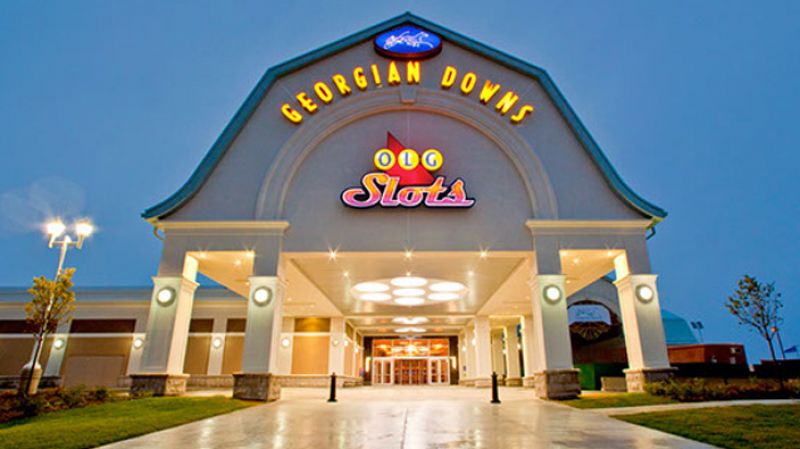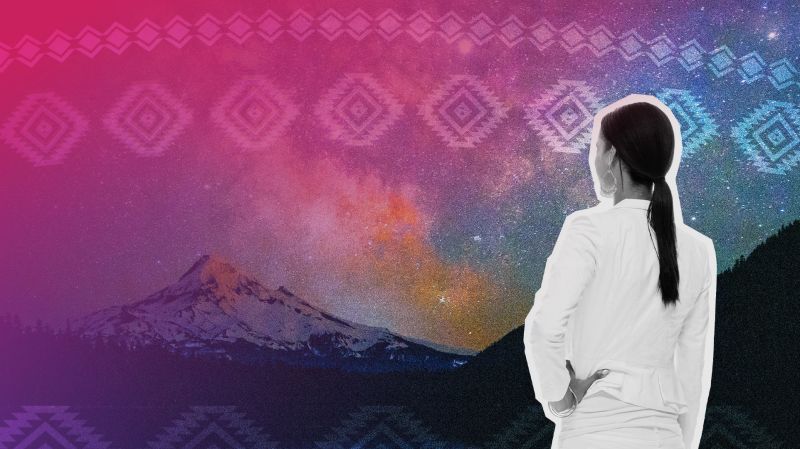Earning a Licence to Drive a Business
At OLG, future growth hinges on how well today’s downstream effects are mitigated. Here’s how Ontario’s lottery and gaming operator converts social responsibility into strategy

In the gaming world, risk is most often associated with the player rather than the provider. But for a state-owned lottery and gaming operator such as OLG, there is considerable risk in being seen as a poor corporate citizen — it could be a growth killer. Since coming to OLG in 2007, Paul Pellizzari has led an award-winning social responsibility program that is integrated throughout OLG’s four business lines. As Executive Director of Policy and Social Responsibility, Pellizzari has used a deep bag of tricks, including technology, social marketing, partnerships with mental health organizations, applied research, and data analytics. Pellizzari teaches an undergraduate ethics and social responsibility course at Smith School of Business and was a presenter at the Centre for Entrepreneurship, Innovation & Social Impact in October 2015. In this conversation with Smith Business Insight, Pellizzari discusses how social impact shapes OLG’s operations and why he hates the term “corporate social responsibility.”
Responsible Gambling From Aspiration to Operation
Managing social impact is a core operating principle of our business. It needs to be a strategic foundation of what we do. As a Crown Agency, our purpose is mandated by the Province of Ontario. This mandate, rooted in legislation and government policy, directs us to provide gambling and raise revenues for the province, but we must do so in a way that manages the social impact to our players and communities. While recent progress has been significant, we’re still working to fully realize this social part of our mandate. We’re also regulated by the Alcohol and Gaming Commission of Ontario, one of the most rigorous gambling regulators in North America. We must comply with their standards for what’s called responsible gambling, and we also adhere to third party certifications.
And then we have a social licence to operate. Our business cannot grow and evolve without this social licence. Two concrete examples illustrate what this means: in January 2015, we launched our first internet offering, called PlayOLG.ca. When we were given the mandate to deliver, the government said the site had to have a gold standard for responsible gambling. Similarly, we’re in the process of changing our service delivery model; we’re engaging with private sector operators to run our casinos and lottery operations while OLG retains authority to attend to matters of public interest (such as responsible gambling) and to direct the overall market. The government said these changes also had to come with the gold standard.
So we have a statutory, regulatory, and policy mandate that must be realized as part of our business strategy.
Organizing for Social Impact
Our social responsibility program is driven by a shared service model that integrates roles and requirements into operations across all four lines of our business (lotteries, slots and casinos, charity bingo, and internet gambling). Over 10,000 employees in Ontario have role-specific duties related to responsible gambling. Given the operational nature of this program, I report to the Chief Operating Officer. My team is a multi-disciplinary collection of 15: people who work on data analytics, who come from operations backgrounds, who are communication/marketing professionals, and who have PhDs and analyze and interpret academic research. We also have policy development experts. All these disciplines are necessary to provide supports that players can see and touch as part of their experience. (OLG’s social responsibility program operates on a $16 million annual budget.)
Our program is working to integrate what I call “seatbelts and airbags” into the gambling experience, so people can make informed decisions and control their own play. For example, we have a pilot project at the Slots at Georgian Downs, near Barrie, with slot machines into which we have built player-directed time limits and money limits. Slot gamblers now have help understanding their own behaviour and managing their own budgets.Our program is working to integrate “seatbelts and airbags” into the gambling experience so people can control their own play
We also develop and deliver training programs that directly change culture among our employees. For all of our lines of business, for example, we’ve developed eight distinct training programs in conjunction with the Centre for Addiction and Mental Health (CAMH). These protocols and procedures direct our staff on how to deal with people who may be showing signs of problematic behaviour.
Unlike alcohol service, where servers can visually detect signs of intoxication, a casino employee or lottery retailer can’t necessarily detect a gambling problem in the same way. But our staff, particularly on the slots and casino side, can see someone who has been there for an extended period, who is agitated, or who may have fatigue impairment. These “red-flag” guidelines direct our actions in gaming environments. To date, we’ve tracked thousands of interactions between our staff and players, ranging from the de-bunking of common myths to bridging people into treatment services.
Answering the Sceptics
We do hear from people who doubt our approach. I understand the perceptions of people who are sceptical, including those who assume addiction must be a necessary part of our business model. But when you look at the situation in which OLG operates, we serve a local market. We’re not a destination model, like Las Vegas or Macau. Those places attract tourists who come and go while we require the Ontario population to support our business. So there are actually two strong business drivers for us to ensure gamblers can play in a healthy manner over the long haul. Customers who go bankrupt aren’t actually good for our business. Second, we have to evolve the business because both the casino and the lottery sides are mature categories. If we want to change how we sell the product or innovate product offerings, we need communities to see that we’re doing our job to provide appropriate safeguards.
How do we deal with the demands to build strong corporate reputation? By creating proof points. Eight years ago, we had no strategy and very few compelling program elements to demonstrate that we had defined our role to help players prevent and mitigate the effects of problem gambling. Only by managing the risks to our players across the touch-points where we interact with them, and by measuring and reporting outcomes and impacts, can we improve our reputation over time.
In Search of a Sustainable Player Base
Going forward, I’m most preoccupied with demonstrating that our business will grow based on a player base that is sustainable. If we’re able to deliver the right interactions with players of different risk profiles at the right points in time, we can reduce risk in order to sustain their play.Our operations need to help players of all risk profiles. And we must focus on key segments of people who play regularly. Amongst the 1 to 3 percent of the adult population who have moderate and severe gambling problems, there is a group who should just stop gambling altogether. But they are the smallest proportion. What about the others who will continue gambling? Or players who are at-risk? For all of these people, we need to enable self-directed actions to reduce the risks. If we succeed, more people can play in healthier ways over years and decades.
What’s also really important to us is measuring impact. We’re currently undertaking a few initiatives to see how we can best measure the real value of the programming we deliver. Merely providing education brochures and helpline stickers doesn’t satisfy me. I want to be able to say, look, here’s data that say people’s lives benefit from what we do.
On Why “CSR” No Longer Cuts It
I’ve worked in the “corporate social responsibility” space for 17 of the last 21 years from different perspectives. And I’ll tell you, I hate the term CSR. It’s a dated term that conjures up the PR-driven, corporate philanthropy efforts of the 1990s. I think we’ll see the term disappear. The stuff that matters to me is living up to the aspirations of “social impact” and “social value”. These terms suggest that you’re actually able to measure and demonstrate the benefits your business provides. And how well you mitigate the less desirable impacts that your product or operations may have on consumers and communities. I think the space is evolving more in that direction.
— Interview by Alan Morantz





